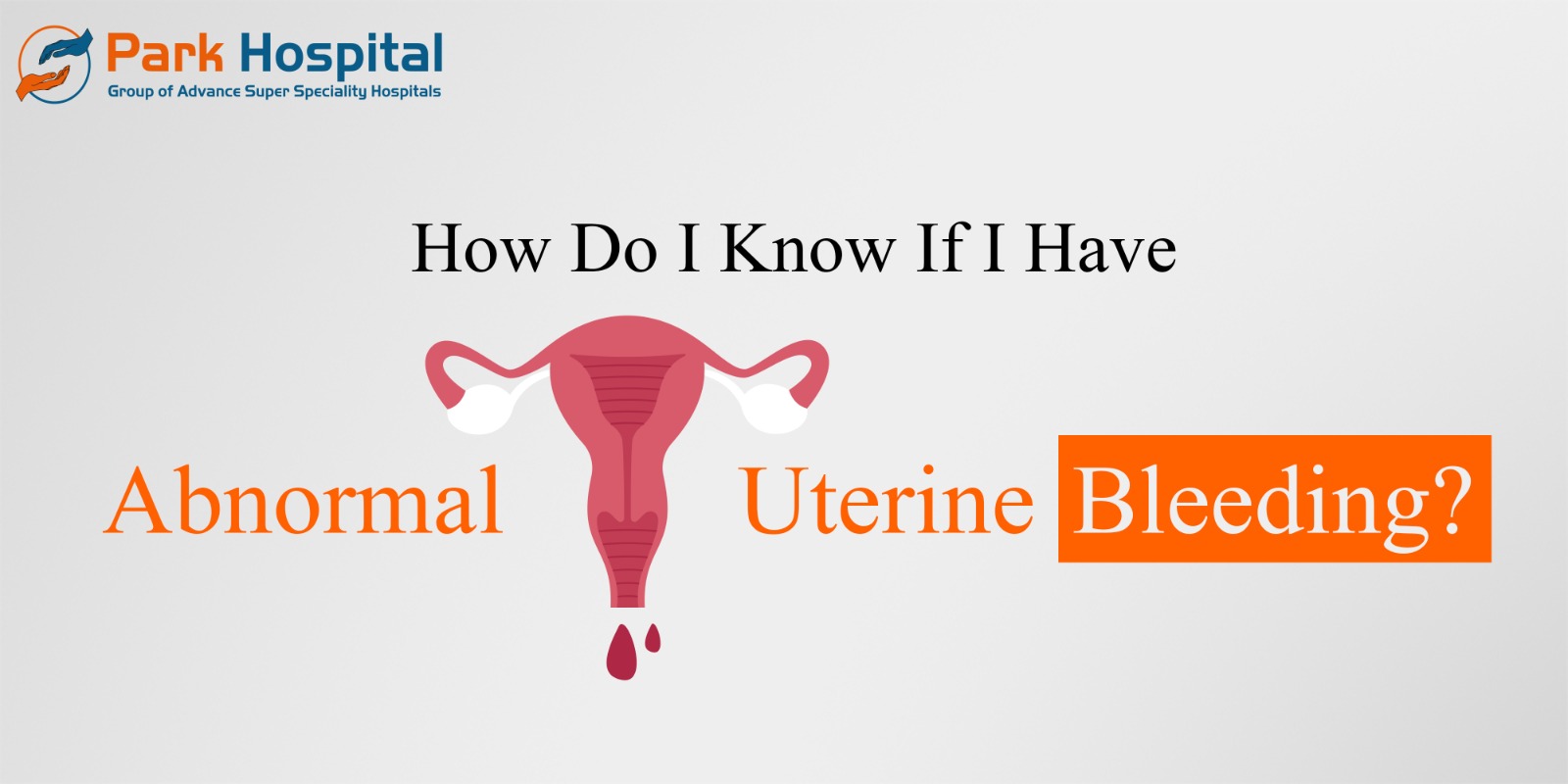Are you experiencing vaginal bleeding or spotting between your periods? Or, do you find that you need to change your sanitary pad or tampon every hour due to heavy bleeding? Is your menstruation continuing for more than seven days? If you have answered yes to any one of the following, chances are that you may be experiencing abnormal uterine bleeding.
Abnormal uterine bleeding is vaginal bleeding between periods or abnormally heavy or long menstruation in non-pregnant women. Abnormal uterine bleeding is commonly found in girls during menarche i.e., the start of menstruation or during the years leading up to menopause.
Abnormal uterine bleeding is not uncommon but many cases go unreported. While often there may be no cause for alarm, it is best to consult with your gynaecologist or health provider about the symptoms you may be facing.
Symptoms of abnormal uterine bleeding
Abnormal uterine bleeding is specifically concerning symptoms that non-pregnant women may have.
Bleeding between periods or after intercourse
Heavy menstruation which requires changing a sanitary pad or tampon every hour for at least two hours consecutively.
Menstruation that goes beyond seven days.
Highly irregular periods/Frequent Menses
Causes of abnormal uterine bleeding
Hormonal imbalance
In most cases of abnormal uterine bleeding, hormonal imbalances are responsible for the condition. This is why it is often found in girls who have just begun menstruating or older women nearing their menopause. This usually has to do with problems of ovulation where if you do not ovulate for many menstrual cycles, the tissues lining the uterus become thick. This is what explains the condition amongst young menstruating girls and older women reaching menopause.
Apart from that, medical conditions such as PCOS or thyroid disease may be the underlying cause of the hormonal imbalance. Women who are overweight may also experience hormonal imbalance which in turn causes abnormal uterine bleeding. When hormonal imbalance is the cause of abnormal uterine bleeding, it is referred to as dysfunctional uterine bleeding.
Structural abnormalities
Structural abnormalities can refer to fibroids and polyps that may be found inside the uterus or on the cervix. These are benign growths that can cause irregular or heavy menstruation.
Another condition called adenomyosis may be the cause where the tissues lining the uterus, the endometrium, is growing into the wall of the uterus. This again causes heavy bleeding during menstruation.
Medications
Birth control pills can cause changes in menstrual bleeding including bleeding between periods. Blood thinners or aspirins may also increase blood flow during menstruation. Intrauterine devices (IUDs) can cause heavy bleeding especially during the initial 10-12 months after insertion.
Precancer/ Cancer
In some rare cases, abnormal uterine bleeding could be an early sign of endometrial cancer which if diagnosed and treated early, can prevent the progression of endometrial cancer. This can be suspected amongst post-menopausal women reporting bleeding. It could also be a sign of cervical or uterine cancer.
Other causes
There could also be other underlying reasons such as infections like Gonorrhea or medical conditions like pelvic inflammatory disease.
Diagnosis of abnormal uterine bleeding
An ob-gyn will first conduct a pregnancy test to rule out bleeding associated with pregnancy, including a miscarriage that could cause heavy bleeding. The doctor will then go on to use other tests after taking down your medical history that can provide a sense of probable causes.
A thyroid test to test thyroid function.
Hormone levels may also be tested.
Ultrasound with endometrial thickness
PAP Smear
If you are an older woman a biopsy may be taken of your endometrium.
Hysteroscopic D&C
Treatment of abnormal uterine bleeding
It is important not to ignore abnormal uterine bleeding as this can cause anemia in some cases or cause abnormalities to increase or cancers to go undetected. There are several treatment options depending on the cause.
Hormonal birth control methods
Heavy and irregular bleeding can be attributed to problems of ovulation that can be addressed with hormonal birth control. This could be in the form of birth control pills or IUDs. Progestin and estrogen lighten menstrual flow and help make periods regular.
Hormone therapy
This is a treatment recommended for women going through perimenopause and experiencing abnormal uterine bleeding due to hormone changes from nearing menopause. Hormone therapy helps women manage other menopausal symptoms like hot flashes and mood swings as well. However, there are side effects to hormone therapy that must be considered. These include increased risk of heart attack, stroke or cancer.
Gonadotropin-releasing hormone (GnRH) agonists
These drugs are used to stop the menstrual cycle and reduce the size of fibroids. This can be used as a temporary treatment alone.
Tranexamic acid
These tablets can be taken at the beginning of the period to treat heavy menstrual flow.
There may be other treatments that a doctor will prescribe depending on your tests. To make sure you get the best consultation on matters related to reproductive health, refer to a team of doctors that you can trust like the OBGYN Department at Park Hospitals. As a multispeciality hospital, it can run diagnostics and provide you with several treatment options to choose from. As a well-reputed hospital, doctors follow up on treatment and care and ensure everything is done in your best interest. To know more about the OBGYN Department at Park Hospital read about their services. You can also make an appointment and consult with a doctor on their team.
Conclusion
Abnormal uterine bleeding refers to bleeding between periods or after intercourse, or heavy or irregular menstruation. This is generally seen to be caused due to problems of ovulation or hormonal imbalance common amongst girls that have just begun menstruating or older women nearing menopause. Another common cause may be fibroids or polyps. Consulting a doctor is important as abnormal uterine bleeding left unattended could lead to anemia or abnormal growths or even be an ignored sign of cancer.
FAQs
Is bleeding after sex normal?
Bleeding after sex is a sign of a possible medical problem and can be a sign of an infection, or cervical cancer. It is best to consult a doctor if you find this happening for more than one occasion.
Can birth control pills or IUDs cause abnormal bleeding?
Yes. Hormonal birth control methods can cause abnormal uterine bleeding and you must consult your doctor if you find that your menstruations are irregular or becoming heavier than normal.
What is a normal menstrual cycle?
A menstrual cycle is 21-35 days with a menstrual period lasting for less than seven days.
When is bleeding abnormal?
Bleeding for a non-pregnant woman is abnormal when:
Bleeding occurs between periods
Bleeding occurs after intercourse
There is abnormally heavy bleeding during menstruation
Menstruation lasts for more than seven days
Irregular periods where a cycle is longer than 35 days or shorter than 21 days
Vaginal bleeding in older women after menopause
Can I take birth control pills if I have heavy bleeding during periods?
Hormonal birth control methods are used to help regularise and reduce heavy periods usually. However, these medications cannot be self-prescribed and need to be taken only after a doctor examines you and ensures it is safe for you to take.
Can the thyroid affect my periods?
Thyroid controls menstruation. Thyroid function determines how heavy your flow is. So a thyroid problem can cause a problem with your menstruation for which you will need to consult a doctor for. It is best to first take an appointment with an experienced OBGYN like the doctors at the Park Hospital that have multi specialities that cover any reference that may be required.










